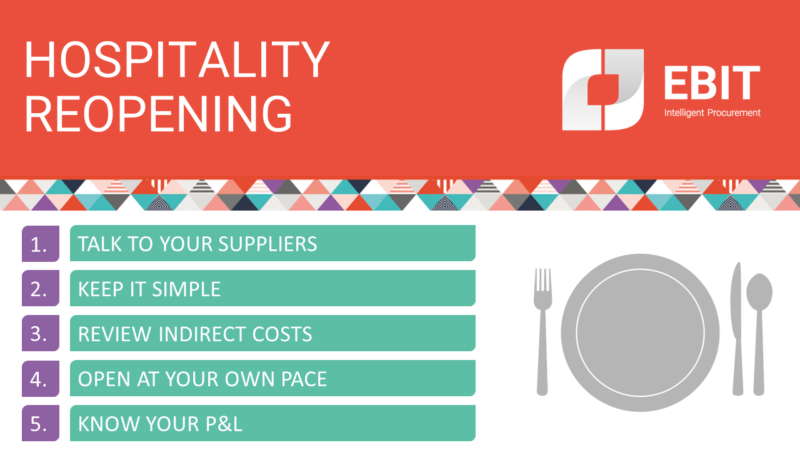Hot topic: Hospitality reopening
If all continues on track, the 17th May is a date of huge significance for hospitality businesses in England and Wales (Scotland partially opened on 26th April). Whilst many industries have been massively affected by the devastating events of the past year, retail and hospitality have arguably borne a large part of the brunt. Hospitality ordinarily contributes circa £130bn to the UK economy annually. The industry has been in hibernation for the most part of the past 12 months resulting in lost sales of around £80.8bn in 2020 (the equivalent of £220m per day), the accrual of over £2bn of unsettled rent, £3bn of Covid business interruption loans and the loss of around 660,000 jobs. Whilst operators with outdoor facilities were able to partially reopen on the 12th April, three out of five pubs/restaurants concluded it was not viable at that point. With hotel restrictions remaining in force until the next phase of the planned roadmap also, the industry is at a critical point on the road to its survival. There is a lot riding on this stage of a (hopefully!) continued return to some kind of normality.
When gearing up for reopening, and subsequently trading successfully, it’s worth considering a number of elements. Whilst the reopening of indoor hospitality will be a huge boost, until all Covid restrictions are relaxed the industry will still be hampered from achieving a full recovery, so it’s important to be strategic. As well as fewer hospitality operators post pandemic, the supply chain has been hugely challenged and has sustained massive structural damage. There are fewer suppliers and those left will also have challenges and compromised balance sheets, and will be seeking a sustained, profitable recovery. Your suppliers will be as keen as you to build a robust, sustainable and profitable partnership. Be firm, clear and transparent, but also be fair.
1) Talk to your suppliers
It’s important to keep talking with your suppliers to ensure that your supply chain remains efficient, sustainable and in sync with your objectives.
- Are their product details, range and pricing still appropriate to your business now?
- Share your aims and aspirations
- Agree strong mutual goals and cement trust
This will encourage long-lasting and more stable relationships, ultimately creating increased value over time.
2) Keep it simple
Reopening is not the time to make life complicated.
- Ensure your offering is clear and straightforward to deliver efficiently
- Consider seasonal ingredients that can be used across the menu thus creating economies of scale in purchasing and reduced wastage
- Regularly review menus and amend where necessary to remove slower selling dishes
3) Review indirect costs
Avoid exclusively focusing on direct procurement categories, logical though that may seem. With direct costs increasing and Brexit also having an influence, ensure that you review other items of expense on your P&L.
Indirect costs account for significant amounts and are often overlooked as a “necessary evil”. There is price inflation in these areas also, but longer-term commitments and supplier negotiations can reduce costs which in turn can mitigate some of the unavoidable increases seen elsewhere. Spend such as chemicals, disposables, utilities, stationery, payment processing, facilities management/property, professional services, marketing etc. are all areas of spend that, left unattended, can have a hugely detrimental effect to overall P&L.
When attention is given to these indirect spend areas, it is possible to achieve substantial cost savings and drive efficiencies that make a real difference to the bottom line.
4) Open at your own pace.
Reopening pace will vary per property. Reopening will unlikely revert to pre-Covid numbers for some time yet, so review opening hours and capacities to suit your business and modify schedules as is right for you. In some cases, it may not make economic sense for you to reopen according to the same schedule that the government allows.
It’s important for hospitality to remain adaptable to changing market and consumer habits. For example, if you have successfully operated a takeaway or delivery service throughout lockdown, it’s worth considering continuing this service alongside table service.
5) Know your P&L
It is likely that your guests’ requirements, attitudes and mindsets will have changed significantly over the past year which will be reflected in their spending habits. If you make sure to thoroughly review your P&L statement regularly, you will be able to identify trends early and adapt where appropriate ahead of significant financial impact. A daily food flash will help greatly in identifying at theoretical level. Make sure that you know the margins for all elements of your menu. Remember that VAT is 5% until September for food and non-alcoholic drinks which are sold to eat on the premises of establishments such as restaurants, cafés and pubs, as well as hot takeaway food and non-alcoholic drinks, so take that into account in your margin calculations.
In summary…
In any event, customers are keen to resume socialising in pubs, bars, restaurants, hotels and the leisure sector. Try to avoid any risk that will jeopardise provision of the excellent customer service with which the UK hospitality industry is synonymous. To this end, remember also that your staff have been through a tough time too. Some may not have worked over the past 12 months and will have faced their own personal challenges. Train, motivate, look after and appreciate them and they will in turn be fantastic advocates to support your business recovery.
At Ebit we are experts in Intelligent Procurement, predominantly across indirect spend, with clients across many industries including retail and hospitality. For more info on how we may be able to support your business on the road to recovery, do get in touch.

